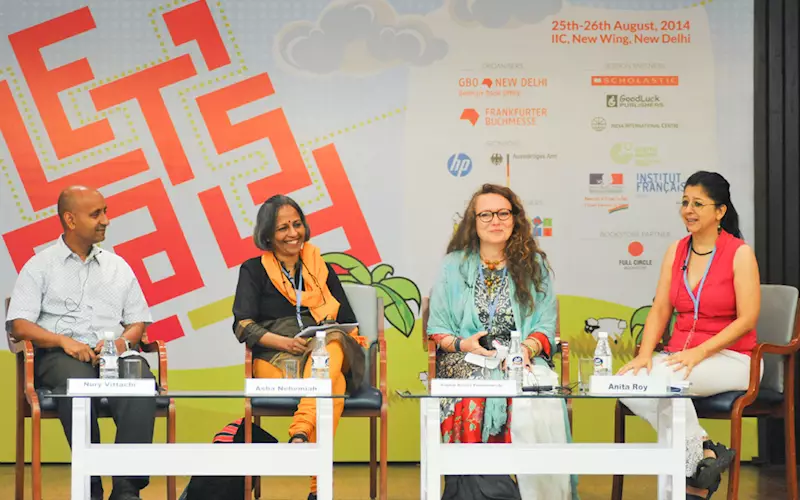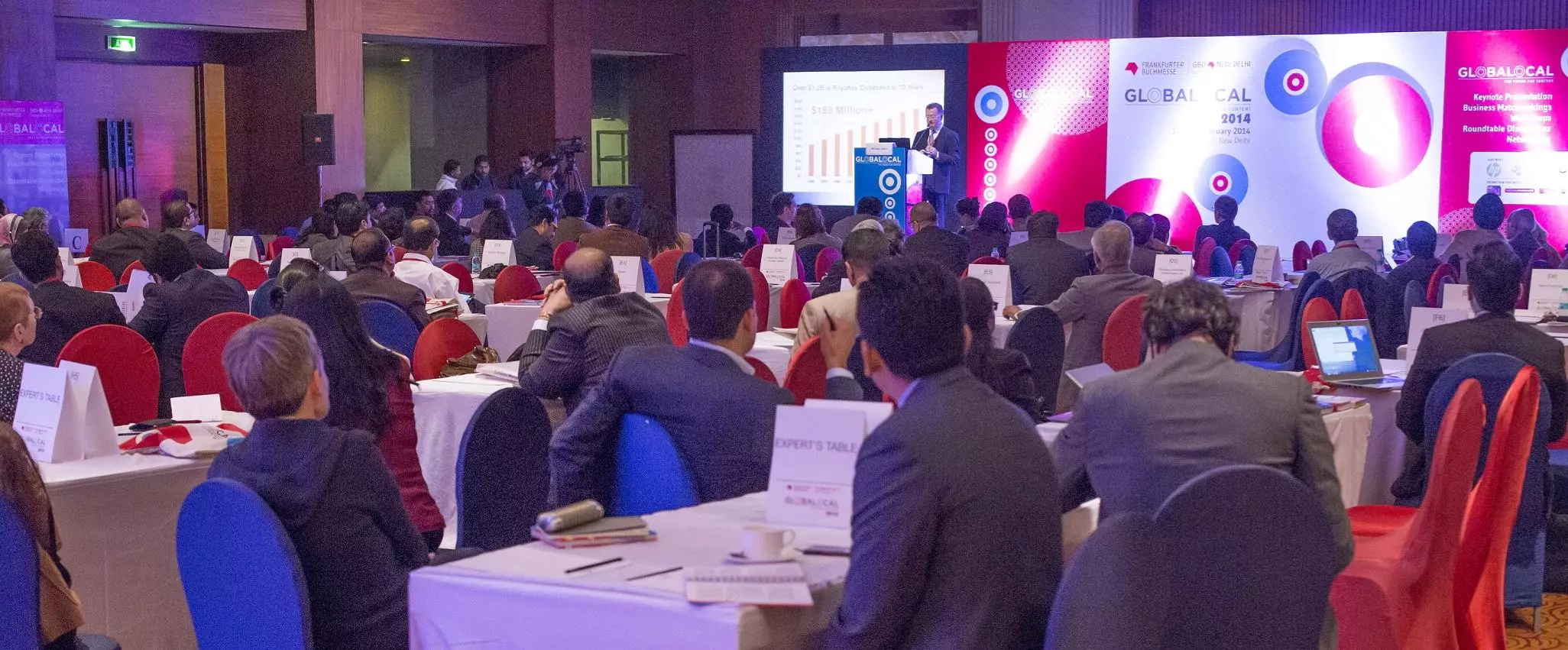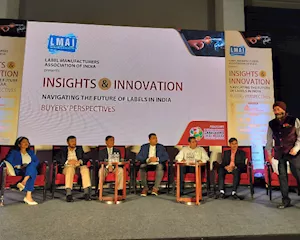‘Printers need to stand collectively’
As expected, the latest edition of the Frankfurt Book Fair, the world’s largest publishing conference, which was held from 8-14 October, 2014, was filled with activities. “The overall experience has been vibrant and diverse,” says Prashasti Rastogi, director, German Book Office New Delhi.
21 Nov 2014 | By Dibyajyoti Sarma
“There were more exhibitors and the Focus Asia initiative, with impetus on South East Asian countries,” Rastogi adds. “For example, there was a brilliant preview for Indonesia with about 30 different events, the guest of honour country for the next year. Even this year’s guest of honour Finland had an impressive presentation in various halls from children’s books and digitisation, to education and comics. The clear-cut design of their presentation in the Forum, and the focus on literature and reading, enchanted many thousands of visitors.”

Prashasti Rastogi, director, German Book Office New Delhi
German Book Office (GBO), New Delhi is a joint venture of the Frankfurt Book Fair and the Foreign Ministry of the Federal Republic of Germany. Besides promoting German books and the activities of the Frankfurt Book Fair, GBO New Delhi serves as a contact point between the book industry in South Asia, Germany as well as the international book and media industries.
Frankfurt Book Fair is not just a showcase of world literature; it is also the most important marketplace for the world’s publishing industry, so much so that the Fair is known to be the place where the upcoming trends in the industry are set. In this context, Frankfurt is rightly tagged as “Global Capital of Ideas”.
According to Juergen Boos, director, Frankfurt Book Fair, the Fair provides a fertile ground for new ideas and business deals – for those who approach it properly. “It’s as true here as anywhere else, that the world belongs to the enterprising people. This means having the courage to cross boundaries, perhaps even to ‘relocate’ mentally to other countries or industries – or simply to take steps in the direction of your customers,” he says.
“The publishing industry has a lot of charm and personality,” adds Boos, “and – after an initial moment of panic – it is now demonstrating an astonishing level of mental agility, even in the face of digitisation.”
Talking about the trend, Rastogi says, this year, the attention to publishing services and digital innovations continued. Understandably, the publishing community has come to terms with the fact that ebooks are here to stay, and so are the online retailers. The attempt now is to find ways to harness these aspects of publishing within the traditional publishing scenario.
Coming back to traditional publishing and printing, all major Indian players were there, including Repro, Replika and Thomson. Yet, Rastogi says Indian representation in book publishing left something to be desired. “There is need for Indian printers to come together in one platform to make their presence felt in the world market,” Rastogi says. “It becomes all the more important as we face constant competition from countries like China and Taiwan, especially in the context of book printing.”
She says while individually Indian printers have already grabbed the international attention, it’s time for them to come together within a collective. This is, however, easier said than done, she adds.
While the plan to do away with the fabled ‘Hall 8’, where usually English-language publishers are housed during the Fair, there was another innovation of this year Frankfurt Book Fair – the Business Club. The Business Club offered its members a comprehensive range of valuable services and a brand new way to experience the Book Fair. “With its flexible range of conferences, consultation sessions, networking formats and lounges, the Business Club offered its members inspiration, guidance and a space where new business ideas can flourish,” says Rastogi.
The club brought together around 3,000 visitors from more than 50 countries. In more than 70 sessions, approximately 150 speakers examined the issues and trends of the international publishing and media industries.
Several publishers used the Fair as the location for their international launches. For example, British author David Nicholls released his latest novel ‘Us’ simultaneously in the UK and in Germany.
While introducing the Indian print and publishing industry to the world, via Frankfurt Book Fair, remains a primary focus of GBO New Delhi, throughout the year, the organisation hosts several other events, focused on publishing, and yet tailor-made specific target groups, ranging from Jumpstart, a conference on content for children to the annual event on content, Globalocal.
Merging global with local
An annual event, Globalocal: The Forum for Content, started in 2009, is an exclusive forum for content, tailored to the publishing and allied industry, and has evolved from a conference format to an exclusive B2B platform integrating expert speaks and networking opportunities among other avenues of business outreach. “Targeted at national and international players within the publishing and ancillary industry, this event is the once-in-a-year chance to come together and explore further business possibilities while exchanging and updating knowledge and expertise,” says Rastogi.
Next year, the event will take place in New Delhi on 12-13 February 2015, just before the start of the New Delhi World Book Fair.
Participants to the event belong to various walks of the industry spiral, including publishers, distributors, retailers, printers, publishing solutions providers, journalists/columnists, authors, book marketeers, publishing professionals and those interested in the world of publishing.
Training for publishers
The ‘Publishers training programme for young professionals’, offers young entrants to the field with tools to help them stay abreast with the requisite skills in the age of digital publishing and transmedia.
“The Indian publishing industry is experiencing a rise in the engagement of young professionals who are making a significant contribution to the strategy of the future. The face of publishing is also changing very competitively and there is a dearth of training opportunity on the new age topics,” says Rastogi. “This programme is aimed at young professionals who are already working in the industry and wish to acquire expertise in new techniques in publishing.”
The 2-day programme has lined up discussions on digital publishing, multi-platform strategy and rights management for cross-media. “The participants will learn, from international experts and other star practitioners from India, the know-how for conducting business. This interface will not only take a look at German and international publishing industry but also addresses a major need felt by the young professionals,” she adds.
This year, the event will take place on 5-6 December, 2014 at India International Centre, New Delhi.















 See All
See All